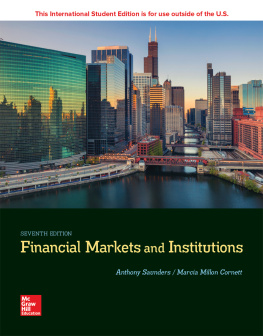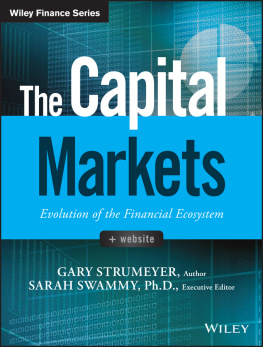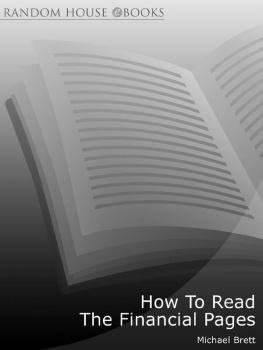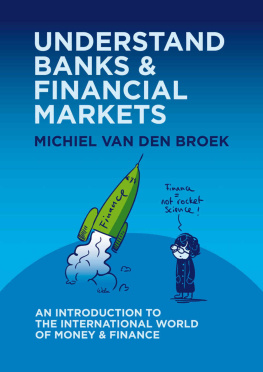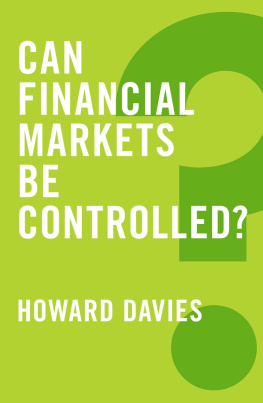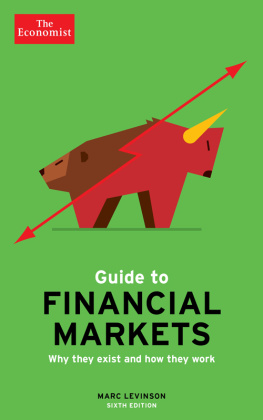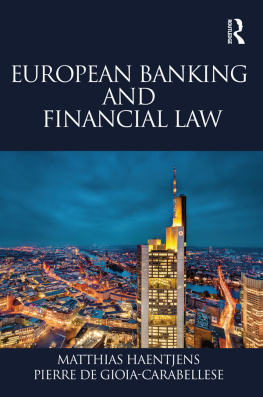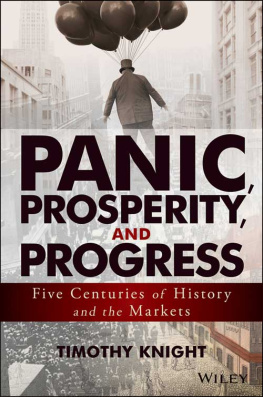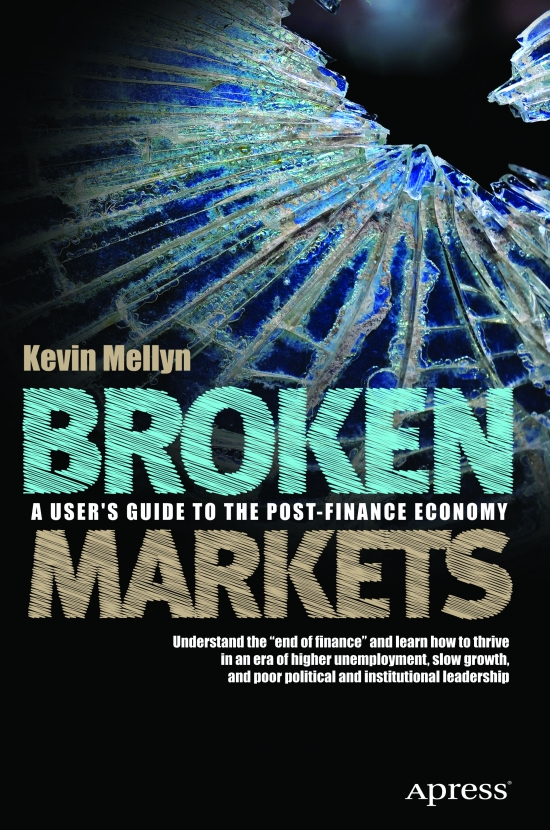Kevin Mellyn - Broken Markets: A Users Guide to the Post-Finance Economy
Here you can read online Kevin Mellyn - Broken Markets: A Users Guide to the Post-Finance Economy full text of the book (entire story) in english for free. Download pdf and epub, get meaning, cover and reviews about this ebook. year: 2012, publisher: Apress, genre: Romance novel. Description of the work, (preface) as well as reviews are available. Best literature library LitArk.com created for fans of good reading and offers a wide selection of genres:
Romance novel
Science fiction
Adventure
Detective
Science
History
Home and family
Prose
Art
Politics
Computer
Non-fiction
Religion
Business
Children
Humor
Choose a favorite category and find really read worthwhile books. Enjoy immersion in the world of imagination, feel the emotions of the characters or learn something new for yourself, make an fascinating discovery.

- Book:Broken Markets: A Users Guide to the Post-Finance Economy
- Author:
- Publisher:Apress
- Genre:
- Year:2012
- Rating:5 / 5
- Favourites:Add to favourites
- Your mark:
Broken Markets: A Users Guide to the Post-Finance Economy: summary, description and annotation
We offer to read an annotation, description, summary or preface (depends on what the author of the book "Broken Markets: A Users Guide to the Post-Finance Economy" wrote himself). If you haven't found the necessary information about the book — write in the comments, we will try to find it.
I would sleep better if I knew that Bernanke, Geithner, Bachus, Sen. Tim Johnson, Obama and Romney all kept dog-eared copies of Kevin Mellyns Broken Markets on their nightstands. . . . Mellyns work is a fascinating, important, and eminently good read and should inform the debate on overhauling the U.S. and global financial regulatory systems and sustainable macro fiscal and monetary policy.
--Eric Grover, in his review of Broken Markets in The American Banker
Broken Markets allows the intelligent non-specialist to understand and navigate the ongoing worldwide aftermath of the 2008 financial market meltdown. The key theme of the book is how the leading financial institutions and the political leadership of the U.S. and European Union have failed us and set the stage for continued market turmoil. It explains what this means for investors, borrowers, society in general, and the financial-services industry. Former banker Kevin Mellyn focuses on providing readers with clear and simple explanations of the forces at work and the potential consequences for their future prosperity.
As this book makes clear, whats coming is a world in which high structural unemployment and flat or declining real income is likelynot to mention a diminished retirement financial safety net. The book therefore provides actionable information for protecting wealth and making prudent investment decisions in an economy that is nothing like the one that has sustained us for decades.
As a forward-looking narrative about rapidly changing events and volatile markets and politics, Broken Markets will provide no single prediction about the future but rather describe alternative scenarios and provide the reader with signposts to watch out for in deciding which reality is actually unfolding. Unlike most books written by journalists on global finance, the scenarios and signposts described will be largely based on the lessons of financial and political history rather than breaking news. This book:
- Tells you in plain language how todays financial system threatens your livelihood and wealth
- Tells you why and how governments worldwide, with some notable exceptions, are taking actions likely to make things worse instead of better
- Explains how the leading financial institutions lost their way during the bubble years and how they can find the path back to prosperity and value to society
- Tells you what life will be like in a post-finance economy and how you can protect your wealth
After reading Broken Markets, you will:
- Understand how governments and financial leaders made poor decisions and the consequences in both the short and long term
- Connect the dots between seemingly unconnected market developments
- Understand how global finance really influences your livelihood
- Evaluate professional investment advice critically
- Make an independent, informed evaluation of competing economic and political policies
- Develop a long-term financial game plan for a post-finance world
- Impress your friends and family with your financial savvy
Broken Markets is for people who have savings and investments, watch the business news, read the Wall Street Journal or Financial Times at least occasionally, and just want to make sense of the post-2008 crisis world while taking steps to protect their hard-won wealth. It is not intended for financial professionals, though it will strike a chord there. Mostly it is for the sensible, educated man and woman looking for straight talk and clarity. It is also a good choice for students and young people just starting their careers since it teaches them things their teachers (and often their employers) never told them. Above all, it is a good choice for anyone who likes to be informed, provoked into re-examining beliefs and assumptions, and entertained by sharp-edged writing.
Table of ContentsIntroductionChapter 1: The Rise and Fall of the Finance-Driven Economy
Chapter 2: Banking, Regulation, and Financial Crises
Chapter 3: Economic Consequences of Regulation
Chapter 4: Life after Finance
Chapter 5: Global Whirlwinds
Chapter 6: The Consumer in the World After Finance
Chapter 7: The Reconstruction of Finance
Kevin Mellyn: author's other books
Who wrote Broken Markets: A Users Guide to the Post-Finance Economy? Find out the surname, the name of the author of the book and a list of all author's works by series.


